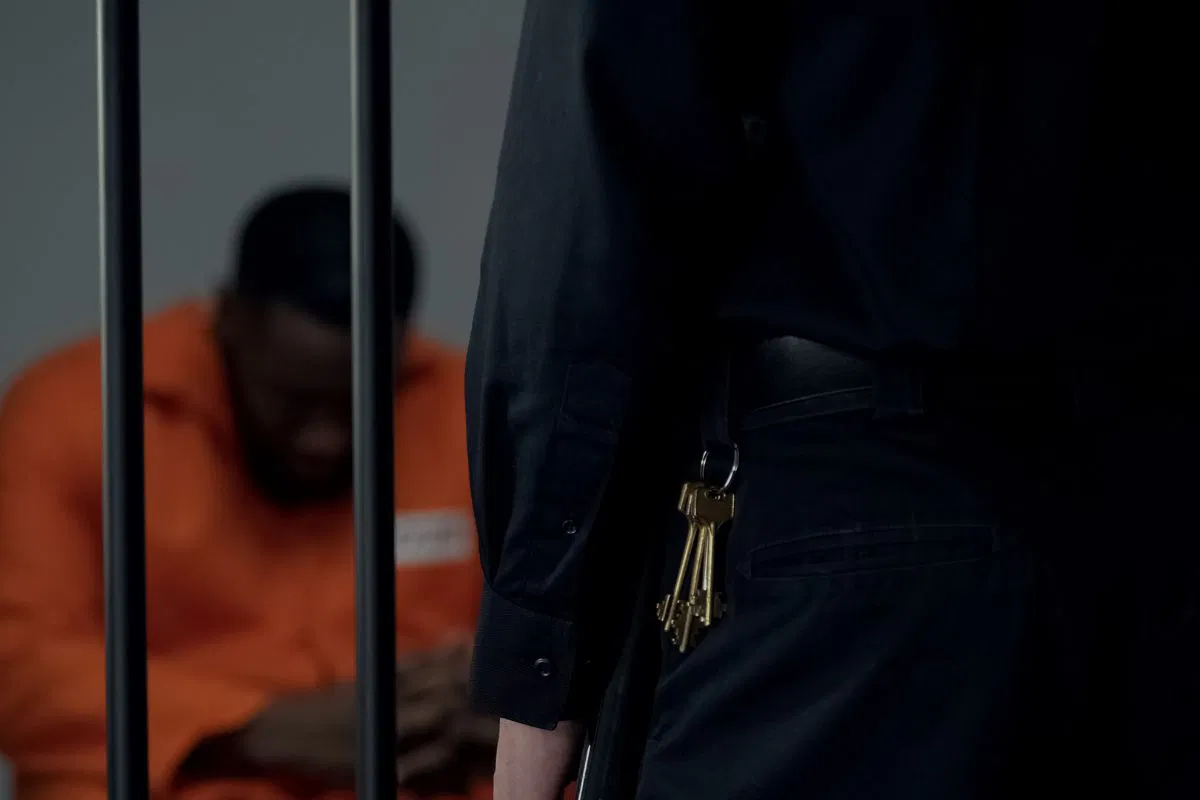The Unwritten Rules in Prison: How Are They Important

Published March 25, 2024
Life in prison will always be challenging to navigate. Of course, it is entirely different from what we have in the usual day-to-day scenarios. Outside, we have all the freedom and all the will to do as we wish as long as we’re not harming anyone or anything. But while locked up, you’re restricted in all things, and your freedom is robbed.
And with an entirely different environment, you have to conduct yourself appropriately. In this article, we’ll discuss all the unwritten rules in prison you need to be aware of. It will come in handy for educating yourself. More importantly, when someone you know or you will serve time incarcerated. Let’s start.
1. No snitching
Most inmates practice one of the most critical jailhouse rules: no snitching. It is a code of silence in prison culture, and breaking it can have serious repercussions. The idea is simple: Prisoners don’t want to be someone betraying their fellow lockups or being a rat.
2. Mind your business
Stay out of others’ business unless you are included. Don’t eavesdrop or gossip. Nobody likes it. While it may sound unserious, inmates might snap off or ask angrily if they were talking to you.
It helps to note that you should not include yourself in others’ discussions unless asked. While it may seem like you’re being helpful if you overhear a conversation and jump in to contribute, the opposite is true. Here, you cross a line.
3. Observe personal hygiene
Prison is dirty—there’s no other way around it. Cleanliness encourages personal well-being and helps stop the spread of diseases and infections. Basic hygiene regimes, such as regular showers, are vital to staying healthy.
4. Understanding prison slang
Inmates and guards use prison slang to communicate with one another. Learning and understanding these terms will help you navigate talks and discourse, establish connections, and avoid misunderstandings.
- The hole- slang for solitary confinement or the segregated housing unit
- Buck- slang for a year in incarceration
- Fish- a new inmate, someone who is naive about prison life
- Shakedown- a search of an inmate’s cell or belongings looking for contraband
- The yard- is slang for the outdoor recreational area within a jail where inmates can exercise and socialize.
- J-cat is an inmate who has spent significant time in segregation.
5. Fight back
Standing up for yourself is vital, even if you get hurt. No matter what, don’t let others mistreat you. When you display a willingness to defend yourself, you send a sign to others that you’re not an easy target. This helps prevent them from continuing to harass or bother you.
6. Don’t stare
Avoid staring at others. Staring can send a wrong message and spark misunderstandings. People might think that in doing so, you want to start a fight. Also, or engage in inappropriate behavior. You have to be mindful of where you look. Also, respect others’ personal space.
7. Share food with others.
If you have the privilege of a cooking facility, it’s a grand gesture to share it with others. Sharing is a positive act that can earn you respect from your peers—sharing aids in building good relationships with others. It’s always better to have fewer people who dislike you.
8. Don’t disrupt the order of the TV.
Inmates must adhere to established rules and routines when using communal facilities such as the television area and the gym. Disrupting the orders in these areas could refer to behaviors such as causing a disturbance, fighting over the TV remote, or violating gym etiquette.
It’s crucial to maintain order and follow established rules to prevent conflicts. It also holds a sense of security and control within the facility.
9. Pay your bills
The two most important things an inmate has in prison are his money and his word. If those two things aren’t in sync, the person isn’t worth much. Exclude yourself from them. Let some other prisoners teach them a life lesson.
The inmate population usually is not the most responsible individuals. Yet, it is a must to stay on top of your obligations. You need to pay your dues in stores, gambling, smoking, or drinking. If not, the debt will be paid through violence.
10. Wait your turn
Waiting in line is a regular regime of prisoners’ lives. It is used in all things, such as showering, commissary, medical, and eating. Ensure to wait for your turn.
Don’t cut in front of everyone. Even if another inmate allows it, the people behind them may not feel the same way.
11. Knock before you enter.
Knock before entering if you’re in other inmates’ cells or cubes. Prisoners hate it when someone who doesn’t live with them barges in without knocking.
And if the window is covered, stay out of it. It means something personal is going on; the last thing you want to do is walk on it.
12. If you didn’t put it there, don’t touch it.
Moving someone’s stuff in a prison setting is another no. This is true for food items, magazines, books, and laundry, among other things.
If you didn’t put it there, leave it be. Messing with other prisoners’ stuff will cause problems throughout your stay.
You have to select your battles in prison. Besides, spotting another washer or place to sit still is easier.
13. Don’t disrupt someone’s nap.
Do not wake someone up if you are at a penitentiary where it is safe to take naps, such as prison camps or low-security ones.
14. Don’t move into someone’s bunk without permission.
People lie to pick who they live with. As you progress through the varying security levels of prison, the repercussions become less severe. Still, asking someone before you move in out of respect is always a good idea.
You are assigned a bunk number when you first get to a facility. Typically, you cannot control this decision. Once settled somewhere, find a bunk you want to move into and ask who is already living there before requesting the move.
15. Stay with your race.
Diversity and acceptance are valued in our society. Yet it is better to stick with people from your racial background inside prison walls. You risk going through physical harm or getting into fights if you don’t follow these guidelines.

ADVERTISEMENT
Frequently Asked Questions About Rules in Prison
What is the first rule of prison?
A typical first rule in prison is never to show weakness. Do not allow yourself to be bullied. Stand up for yourself when necessary. Maintain a level of toughness.
Why do you knock on the table in prison?
Knocking on the table in prison is a form of communication—particularly a sign of respect. Inmates might knock on the table to acknowledge someone’s presence or to display appreciation.
What does whistling mean in prison?
Whistling can remind inmates of freedom and the outside world. It is which can be distressing or irritating for those who are incarcerated. Another belief is that it can be linked to attracting unwanted attention or disrespect. Both assumptions can lead to conflicts.
What does unicorn mean in prison?
A unicorn in a prison setting refers to a rare or unique item or situation that is highly sought after by inmates. It could be a contraband item, a favor from a guard or fellow inmate, or any desirable circumstance one wants in the prison environment.
And there you have it. May our discussion serve as a great starter guide for educating yourself about jailhouse rules. Our content is thoughtfully made to help one navigate the reality of prison.
Reduce Your Jail Call Costs By Up To 90% Per Minute With GlobalTel
GlobalTel’s inmate calling service lowers jail call per minute rates by up to 90% for jail calls from US facilities. Sign up now and use the special jail call phone number we create for you to eliminate the long distance jail call fees. Try GlobalTel for only $45.99 for 90 days. Make US/domestic and international jail calls at the local rate and stay connected to your incarcerated loved ones for less. Learn more about how to sign up for calls from inmates here.

This Content Is Fact Checked
Our esteemed team of specialists has thoroughly validated the accuracy of this information. Discover further details about the rigorous editorial guidelines for our website here.
ADVERTISEMENT

About The Author
I am Tracy Gorman, a seasoned writer with a passion for crafting content on various subjects. I possess the expertise to delve into any niche and deliver exceptional articles.




